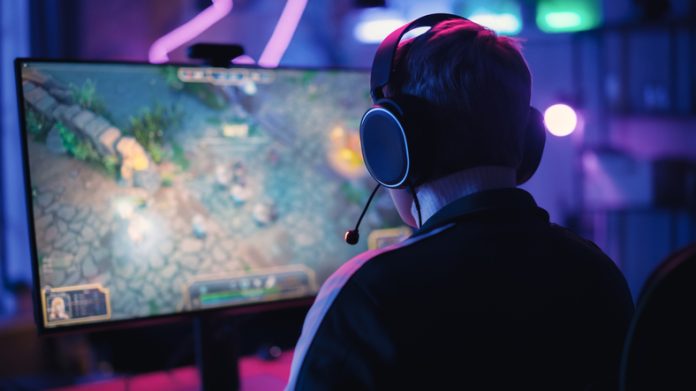As universities look for new ways to embed digital culture and improve transferable skills, esports could be an unlikely but powerful teaching tool. Far from being just about gaming for entertainment, esports can foster graduate attributes such as teamwork, strategic thinking and adaptability – helping educators choose the right games for the skills they want students to develop.
What is esports?
Esports refers to organised, competitive video gaming at amateur, semi-professional and professional levels. It typically involves players or teams competing in structured tournaments, often for prize money and sponsorship, and watched by live or online audiences.
Viewed as a global phenomenon, the esports market is projected to escalate to $6 billion (£4.4 billion) by 2029, from expanding revenue streams and viewership. Worlds 2024, the League of Legends World Championship, attracted an online viewership of 6.94 million.
- Next level? The pros and cons of game-based learning
- Go beyond play and engage students with game-based learning
- Tap into game dynamics in nurse training
Previously perceived purely as entertainment, esports is increasingly recognised as a global industry. It’s now being integrated into educational settings around the world, where it is valued not just for gameplay, but for its potential to develop meta-skills: high-order transferable skills that can be applied across various work-related disciplines. It can also help develop graduate attributes that enhance student employability.
For example, a career pathway in events management, often associated with esports, allows graduates to demonstrate meta-skills associated with organisation, planning, project management, time management and communication skills.
Esports game genres and the skills they embed
Esports game genres are classified into categories, which require and test players’ skill sets. Each type of game has different gameplay challenges that must be perfected by different team members dependent on their roles. Some games can be played player versus player, or PvP. Common esports game genres include fighting game community, real-time strategy, multiplayer online battle arena, first-person shooter, mobile esports, sports simulators and simulated racing.
Player engagement with gameplay mechanics, using spatial awareness, time management and decision-making skills when traversing game environments with characters enhances their meta-cognitive skills. When engaged in esports game genres such as first-person shooter and real-time strategy genres, tactical and strategic skills are important, alongside communication, teamwork and coordination.
Educational challenges with esports
Esports, as an educational subject area, is becoming increasingly popular as a novel and exciting approach to opening up multiple career pathways to graduates. Beyond becoming a professional gamer, these include event management, broadcasting or social media management.
But there are obstacles to integrating esports within education. Scepticism around esports as an educational discipline is a potential barrier – for example, the view that video games possess little educational value.
Esports is also a niche area, so selling the educational benefits to academic institutions, staff and students can present a challenge. Esports is an expensive educational venture, where the cost of equipment can pose problems for educational institutions on budgets. The infrastructure required, such as gaming hardware and software, a high-speed network and dedicated physical space for competitions, means having the funding to run an esports programme is also crucial.
Embedding esports in course curriculum
Integrating esports within educational curricula can be challenging. As an educator you need to consider the question – why esports? Reflect on the educational promise and benefits that an esports programme will provide your students. What will the educational scope of the programme be and how do you convince those who are sceptical of esports as an educational subject, such as your fellow educators or students’ parents?
Other factors are the learning theories that esports can accommodate, such as experiential learning and connectivism. What game genres will you focus on and why? How you structure your programme can help your students hone a diverse selection of meta-skills for the workplace.
If you’re learning about esports for the first time as an educator, immerse yourself in the subject. You will be teaching students who are familiar with esports so you don’t want to get caught out! Try to obtain sponsorship if you can, reach out to esports companies that might be willing to support your educational initiative. Be conscious about the cost of equipment and the infrastructure required to run an esports programme. Enjoy esports but also consider your budgetary constraints – be pragmatic and realistic.
Esports is becoming more and more relevant as a form of educational delivery. If you’re introducing esports into your course curriculum, consider the following points:
- Become familiar with esports – your students are – and understand that it is more than just playing games competitively.
- Engaging with different game genres can help promote different skill sets such as tactical and strategic thinking among students.
- Be familiar with the esports ecosystem and the various career pathways available to students undertaking an esports journey.
- Do not be afraid to seek advice from esports organisations, those involved in the industry or fellow educators.
If you are passionate about esports as a subject and as an educational approach towards instilling meta-skills to your students, you have the ideal mindset for your esports journey.
Gavin Baxter is senior lecturer in computer games development at the University of the West of Scotland.
If you would like advice and insight from academics and university staff delivered direct to your inbox each week, sign up for the Campus newsletter.
